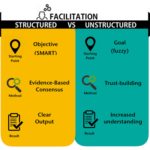Nature walks are a fantastic way for toddlers to explore the world around them, offering abundant opportunities for sensory development and an appreciation of the natural environment. Educational theorists like Maria Montessori and Jean Piaget have emphasized the importance of hands-on, exploratory learning in early childhood education, and nature walks provide the perfect setting for these experiences. Preparing adequately for various weather conditions ensures that these walks are both enjoyable and educational, no matter the forecast.
The Educational Benefits of Outdoor Exploration
Engaging toddlers in nature walks aligns perfectly with educational objectives for early childhood, focusing on physical, cognitive, and emotional development. The unstructured play allowed during these walks encourages problem-solving and decision-making skills as children navigate new terrain and interact with different natural elements. Additionally, this kind of active learning promotes physical health and well-being, making it a highly beneficial activity for young learners.
Planning and Safety Considerations
Safety is a paramount concern when taking toddlers on nature walks. Planning the route in advance, knowing where the nearest facilities and safe shelters are, and preparing for potential hazards are crucial steps. It’s also important to keep the group size manageable and to ensure that every child can be adequately supervised. Additionally, teaching children basic safety rules like staying within sight and not picking up unknown objects helps prevent accidents and ensures a smoother experience for everyone involved.
Dressing for the Weather
The key to a successful nature walk is dressing appropriately for the weather to keep toddlers comfortable and protected. In warmer months, lightweight, breathable clothing and sun hats are essential to protect from the sun, while cooler weather calls for layers that can be easily added or removed as needed. Waterproof jackets and rain pants are vital for wet days to keep little explorers dry and comfortable.
In wet and muddy conditions, equipping toddlers with wellies is an excellent way to keep their feet dry and allow them the freedom to splash around and enjoy the environment. These boots are not only practical but also add an element of fun to their outdoor gear. Ensuring children’s wellies fit properly and provide adequate support is essential for little ones as they explore and learn about their surroundings.
Essential Gear for Every Season
Beyond clothing, other essential items should be considered when preparing for a nature walk with toddlers. A small, lightweight backpack for each child allows them to carry their own water, snacks, and perhaps a change of clothes, which fosters independence. Insect repellent and sunscreen are a must-have in your pack, regardless of the season, to protect against the elements and insects.
Activities to Enhance Learning
Nature walks are not just about walking; they can be enriched with various educational activities that promote learning. For instance, a simple scavenger hunt with pictures or names of leaves, rocks, and insects can engage children in a fun and educational game. For younger toddlers, sensory bags filled with items like pine cones, smooth pebbles, and leaves can provide tactile stimulation and help them learn new vocabulary.
Using Technology to Augment Experience
While the essence of a nature walk is to connect with the natural world, technology can also play a supportive role. Using apps to identify flora and fauna can make the experience educational for both children and adults. Moreover, taking photos or drawing in a nature journal can help children remember and recount their experiences, enhancing both their observational skills and their ability to communicate their observations.
Reflecting and Sharing After the Walk
After returning from the walk, it’s beneficial to set aside time for reflection and sharing. Encouraging children to talk about what they saw, heard, and touched helps consolidate their learning and develop their narrative skills. This can be done informally through discussion or more formally through drawing or storytelling activities, which can be shared with parents or caregivers, further extending the learning experience.
Nature walks offer a myriad of benefits for toddlers, from enhancing their physical health to boosting their emotional and cognitive development. By preparing effectively for all weather conditions, educators can ensure that these outdoor activities remain a staple in the early childhood educational curriculum, providing enriching, enjoyable, and educational experiences for all involved.


